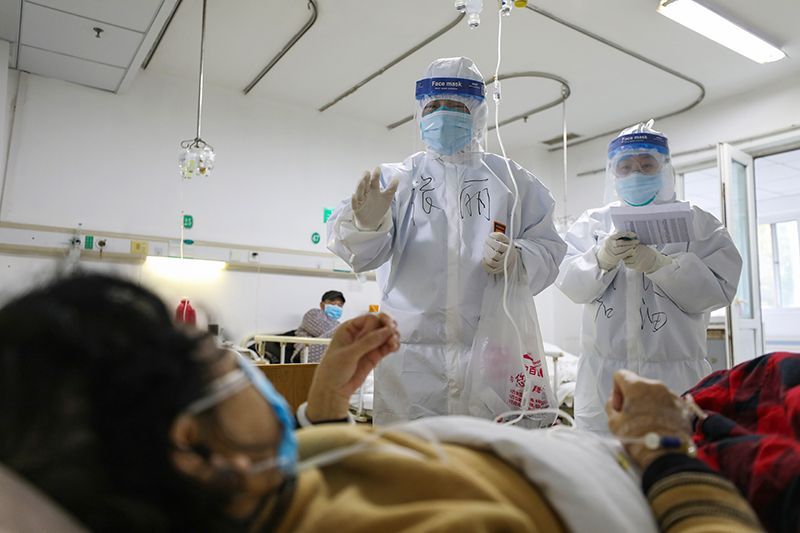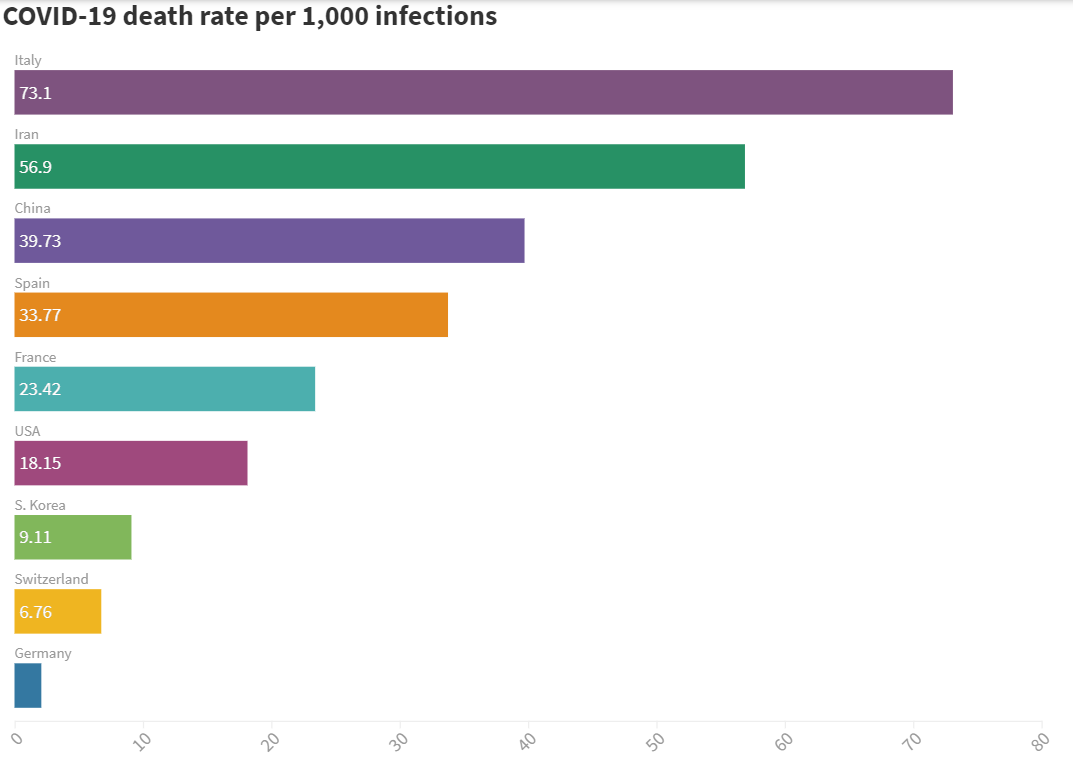Coronavirus: Clinical trial for vaccine begins as EU expected to close external borders

Tests on an experimental vaccine to protect against the new coronavirus have begun in the United States, the first of many efforts around the world to create a vaccine as cases continue to grow.
But experts warn it could take a year to 18 months to approve any vaccine.
Meanwhile, the European Union announced a multi-million euro investment in a German company that is working on a vaccine, amid reports the US government was looking at buying the company.
As work on a vaccine continues, countries around the world are imposing stricter measures in an attempt to stop the spread of COVID-19, with more than 182,000 cases currently confirmed worldwide.
France joined Italy and Spain in essentially locking down the country, confining residents to their homes, while the EU plans to close the bloc's external borders to most foreign travelers.

At a glance: Key coronavirus developments
- The World Health Organization (WHO) urged countries to “test, test, test” in order to break the chain of infections. "You cannot fight a fire blindfolded,” director-general Tedros Adhanom said on Monday. “And we can't fight this pandemic if we don't know who is infected."
- Boris Johnson says the most vulnerable Britons should avoid social contact for three months
- Macron says "we are at war," urging the country to remain at home for 15 days
- In Italy 2,158 people are confirmed to have died from COVID-19, with nearly 30,000 confirmed cases so far
- Countries from Canada to Switzerland, Russia and Malaysia announced sharp new restrictions on the movement of people across their borders
- Wuhan, the central Chinese city where the virus was first detected late last year and which has been under lockdown for weeks, reported just one new case on Tuesday
- Latest figures on new infections and deaths
The race for a vaccine
The first participants in a clinical trial for a coronavirus vaccine at a research institute in Seattle received doses on Monday.
The US National Institutes of Health is funding the trial, taking place at the Kaiser Permanente Washington Health Research Institute in Seattle.
In Europe, the EU announced a large investment in a German company, CureVac, which is working on a vaccine. The investment follows reports the US was looking to buy the company.
Helge Braun, Angela Merkel’s chief of staff, told the German newspaper Bild that officials had “very intensive contact” with CureVac “when there were thoughts of enticing it to the United States”.
“I am proud that we have leading companies like CureVac in the EU,'' said European Commission President Ursula von der Leyen, Germany's former defense minister, on Monday. “Their home is here, but their vaccines will benefit everyone, in Europe and beyond.”
The Commission said it will provide up to €80 million in support.
EU plans to close borders
EU leaders are to hold their second summit in two weeks in an attempt to forge a joint response, with Europe now the epicentre of the disease.
More than 50,000 people are confirmed to have contracted the virus in Europe, and more than 2,000 have died, the majority in Italy.
Spain and France have followed Italy in locking down to halt the spread, while several member states have reintroduced border ID checks
The European Commission is expected to endorse a 30-day travel ban on people wanting to come to Europe for tourism or non-essential business. Long-term EU residents, diplomats and members of European families would be exempt. Health care and transport workers could escape the ban too.
As of Monday, six of the 10 countries with the highest numbers of reported virus cases worldwide are in Europe: Italy, Spain, Germany, France, Switzerland and the UK.
For most people, the coronavirus causes only mild or moderate symptoms, such as fever and cough, and they recover fully. For some, especially older adults and people with existing health problems, it can cause more severe illness, including pneumonia.
Effects of confinement appear to show some progress in Italy
Researchers at Oxford said that there were already seeing the effects of the lockdown in Lodi, which was enacted in late February.
They say that the strict lockdown in Lodi appears to show a flattening of the curve of the epidemic.
Flattening the curve is a term that is being employed to show that measures such as confinement and social distancing can delay the peak of an epidemic. This means fewer people are in intensive care units in hospitals, which will help to slow the burden on health care systems.
"While cases in the province of Bergamo began to increase from Feb 24th, in contrast to Lodi no shutdowns or restrictions were imposed," the Oxford sociologists note in a study on how demographics can affect the epidemic.
The entire province of Lombardy was instead shut down roughly two weeks later on March 8.









